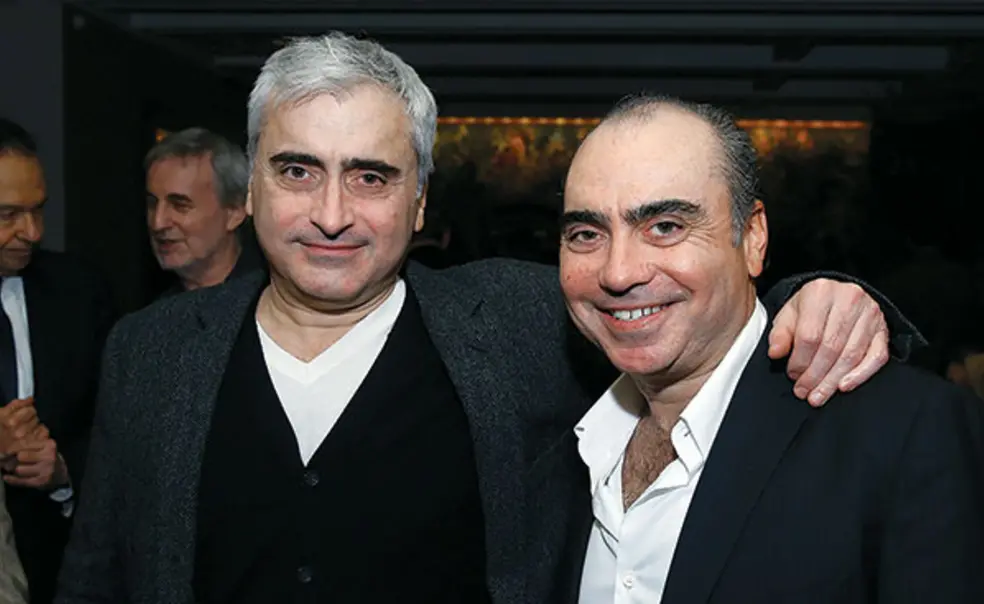Todd Wider ’86 and Jedd Wider ’89: Moving Pictures
Filmmaking brothers use their spare time to promote social-justice issues through real-life stories
Silence, except for the sound of wind rustling through leaves and grass. Then the haunting voice of a woman, alone in an abandoned farmhouse, subsisting on apples and rainwater, journaling as she increasingly loses her grip on reality.
God Knows Where I Am focuses on Linda Bishop, a mentally ill mother in New Hampshire, and highlights the challenges facing our nation’s mental-health system. The film, which was picked up by PBS for national broadcast in October, was the directorial debut of Oscar-winning brothers Todd ’86 and Jedd Wider ’89, who produce documentaries that shine a light on important sociopolitical issues.
“I don’t always have the opportunity to work this way, to work with people who are artists,” says Gerardo Puglia, a cinematographer on two Wider films and on a 1996 documentary about Princeton. “You have to go to the heart — to the soul — of people to motivate them. Jedd and Todd are trying to do [that] — and are accomplishing it.”
While “documentary filmmaker and social activist” might be unexpected moonlighting gigs for a plastic surgeon and a lawyer, the Wider brothers grew up on Long Island with parents who “sparked a strong interest in us to do something that married creativity with an important social-justice cause,” Jedd says.
That marriage first jelled at Princeton, where each brother blended coursework for his major — art history (and pre-med) for Todd, Woodrow Wilson School for Jedd — with classes in film studies. After graduation, Todd became a craniofacial and breast-reconstructive surgeon for cancer patients while Jedd followed in the footsteps of a beloved grandfather, whose approach to the law was focused on helping those in need; he frequently volunteers his services to the arts community and to social-justice causes.
Years ago, Todd became outraged when he learned that one of his patients had to pay the entire cost of post-mastectomy reconstructive surgery. So he helped with the creation of the Women’s Health and Cancer Rights Act (aka “Janet’s Law” after Todd’s patient, Janet Franquet), which President Bill Clinton signed into law in 1998. The experience left Todd exhilarated.
“I thought the options are either you go into politics — which was not particularly appetizing to me — or go into the media,” he says. “I felt strongly that media exposure ... is the best way to engender empathy. And empathy is the key to unlocking social activism.”
Meanwhile, Jedd, logging long hours as a young law associate, was spending his little free time working with friends on a narrative film called Mixing Nia (1998), a dramedy that was sold to HBO. “At that point, I knew film was going to be part of my life,” Jedd says.
In 2006, the Widers produced their first film together, Beyond Conviction, about three crime victims who meet face to face with their perpetrators. The documentary was featured on Oprah and broadcast on MSNBC.
Encouraged, they produced Taxi to the Dark Side (2007), which explores the U.S. military’s use of torture and garnered multiple awards, including the Oscar for Best Documentary Feature, two Emmys, and a Peabody.
The Widers have produced a total of 17 documentaries, of which they directed three, covering topics ranging from sexual abuse in the Catholic Church to the challenges faced by senior citizens in retirement communities. They find stories for their films via newspaper or magazine articles, social causes, and word of mouth. Their projects are typically funded through a combination of investors, grants, and broadcasting deals.
The pair are considering topics for their next film while they schedule the release of To the Edge of the Sky, the latest documentary they produced and directed, about four sets of parents fighting for FDA approval of potentially lifesaving drugs for their children.
“[Todd and Jedd] are doing great things for humanity,” Puglia says. “They’re not just making films. They’re trying to change things.”












No responses yet